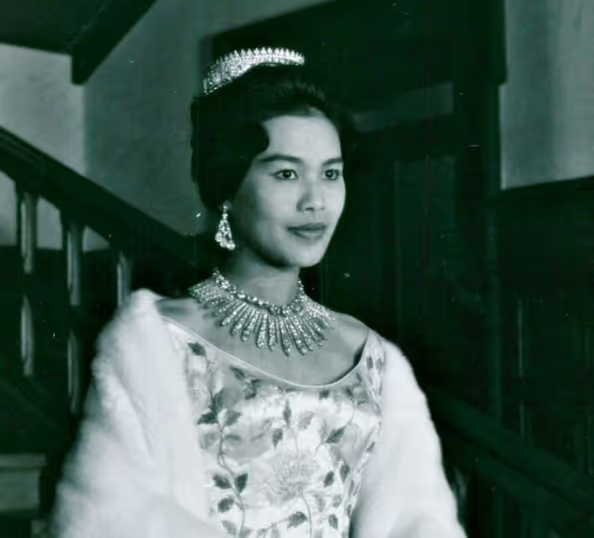Stay informed with our newsletter.
.webp)

.webp)

Queen Sirikit of Thailand, revered as the “Mother of the Nation,” has died. Her birthday, celebrated annually as Thailand’s Mother’s Day, reflected her deep influence and devotion to the Thai people. As the wife of the late King Bhumibol Adulyadej, Queen Sirikit played a vital role in promoting culture, welfare, and national unity throughout her decades-long reign.

BANGKOK — Queen Sirikit of Thailand, the revered queen mother whose birthday became the nation’s Mother’s Day and who spent decades championing rural development, cultural preservation, and environmental protection, has died. She was 93.
The Royal Household Bureau said Sirikit died Friday at a hospital in Bangkok. Since October 17, she had been suffering from a blood infection, and despite her medical team’s efforts, her condition did not improve.
Largely absent from public life in recent years due to declining health, Queen Sirikit was the widow of King Bhumibol Adulyadej, who died in 2016 after a seven-decade reign. Palace photos released for her 88th birthday showed her son, King Maha Vajiralongkorn, and other members of the royal family visiting her at Chulalongkorn Hospital, where she had been receiving long-term care.
Though often overshadowed by her late husband and son, Queen Sirikit was deeply beloved in her own right. Her portrait adorned homes, offices, and public buildings across Thailand, and her August 12 birthday has long been celebrated as Mother’s Day. Her initiatives ranged from aiding Cambodian refugees to protecting Thailand’s once-lush forests.
Sirikit Kitiyakara was born in Bangkok on August 12, 1932, into an aristocratic family with ties to the Chakri dynasty. She attended school during World War II, when Bangkok endured Allied air raids, and later moved to France with her diplomat father.
At 16, while studying music and languages in Paris, she met Thailand’s young King Bhumibol Adulyadej. Their friendship deepened after the king suffered a near-fatal car accident, prompting her move to Switzerland to help care for him. The king courted her with poetry and even composed a waltz titled “I Dream of You.”
The couple married in 1950, and at his coronation later that year, both vowed to “reign with righteousness for the benefit and happiness of the Siamese (Thai) people.” They went on to have four children: King Maha Vajiralongkorn and princesses Ubolratana, Sirindhorn, and Chulabhorn.
In their early years together, the royal couple traveled widely as goodwill ambassadors, meeting world leaders and promoting Thailand’s image abroad. By the 1970s, they turned their focus inward, dedicating themselves to addressing Thailand’s rural poverty, opium addiction, and communist insurgency.
Each year, the pair visited remote villages, listening to citizens’ concerns from domestic disputes to health issues and supporting development initiatives firsthand. “People in rural Thailand say they are neglected, and we try to fill that gap by staying with them in remote areas,” Queen Sirikit told The Associated Press in 1979.
Her SUPPORT Foundation, launched in 1976, trained thousands of rural Thais in silk-weaving, jewelry-making, painting, ceramics, and other crafts, providing economic opportunity while preserving traditional skills. Known affectionately as the “Green Queen,” she also championed conservation through projects like Forest Loves Water and Little House in the Forest, and established wildlife breeding centers and sea turtle hatcheries.
While she was sometimes the subject of gossip in Bangkok for her perceived political influence or lavish lifestyle, her popularity among rural Thais endured. Yet her role in Thailand’s turbulent political landscape was not without controversy. During decades marked by coups and protests, she was believed to wield quiet influence behind the scenes. Her public attendance at the funeral of a slain protester once drew criticism as a sign of political partisanship.
Despite such scrutiny, Queen Sirikit remained steadfast in her belief that the monarchy was essential to Thailand’s stability. “There are some in the universities who think the monarchy is obsolete,” she said in 1979. “But I think Thailand needs an understanding monarch. The mere word ‘king’ has something magic in it. It is wonderful.”
For questions or comments write to contactus@bostonbrandmedia.com
Source: NDTV
